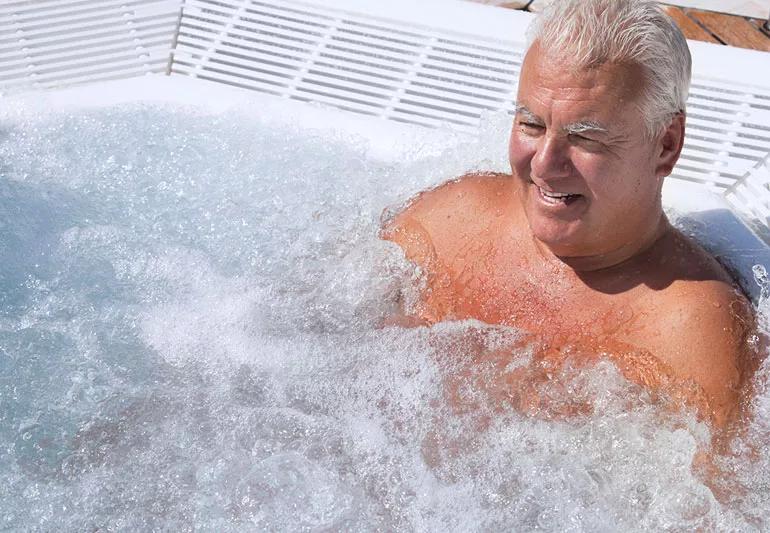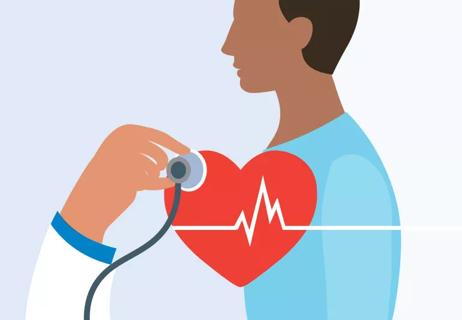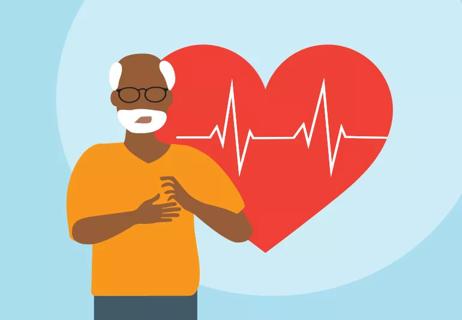Why you should soak with caution if you have a heart condition

If you enjoy relaxing in a hot tub but have a heart condition, soak with caution. Medical experts say sudden or extended immersion in hot water can superheat your body and stress your heart.
Advertisement
Cleveland Clinic is a non-profit academic medical center. Advertising on our site helps support our mission. We do not endorse non-Cleveland Clinic products or services. Policy
“Hot tubs and saunas are potentially dangerous for patients with known or suspected heart disease,” says cardiologist Curtis Rimmerman, MD.
However, awareness and common sense can help keep you safe while you soak, he says.
Talk with your doctor before enjoying a soak. If you get the go-ahead, follow these tips to keep yourself safe:
When you submerge your body in hot water, your temperature rises, but your blood pressure drops.
Evaporating sweat normally helps cool you off. But, when you immerse yourself in hot water, that natural cooling mechanism doesn’t work. As a result, you can’t cool off.
When your body gets superheated:
Normally, these events don’t cause problems. However, if you have existing cardiovascular disease, the cascade of events could overtax your heart. This can lead to:
Advertisement
Medications prescribed for heart conditions can also contribute to the problem:
Dr. Rimmerman describes the process this way: “A sudden rise in body temperature creates significant stress on your cardiovascular system, predominantly via a cascade of adjustments resulting in an elevated heart rate. The higher heart rate ― especially in the presence of reduced heart function, heart arrhythmias and coronary artery blockages ― can cause a cardiac event such as blood flow problems and, in the worst case scenario, manifest as a heart attack.”
You should always keep safety in mind ― even when relaxing in a Jacuzzi, Dr. Rimmerman says. “My best advice is to make sure the water temperature is not too high, to stay hydrated, and if you choose to use a hot tub or sauna ― especially if you are a heart patient ― engage in the activity for only brief periods of time.”
Advertisement

Sign up for our Health Essentials emails for expert guidance on nutrition, fitness, sleep, skin care and more.
Learn more about our editorial process.
Advertisement

Eating heart-healthy foods, moving around more and getting quality sleep are a few ways to get started

If you don’t have other symptoms, try using relaxation techniques and vagal maneuvers to calm your heart down

Chronic stress can trigger palpitations, inflammation, angina and other serious heart issues

Yes — and depending on the level of dehydration, you may need emergency care

Research shows a strong association between rheumatoid arthritis and heart issues

Knowing what you can do to prevent or manage heart disease is half the battle

A skipped heartbeat is usually your heart returning to its normal electrical path

Don’t self-medicate with vitamin supplements without consulting a doctor first

Even small moments of time outdoors can help reduce stress, boost mood and restore a sense of calm

A correct prescription helps your eyes see clearly — but as natural changes occur, you may need stronger or different eyeglasses

Both are medical emergencies, but they are very distinct events with different causes